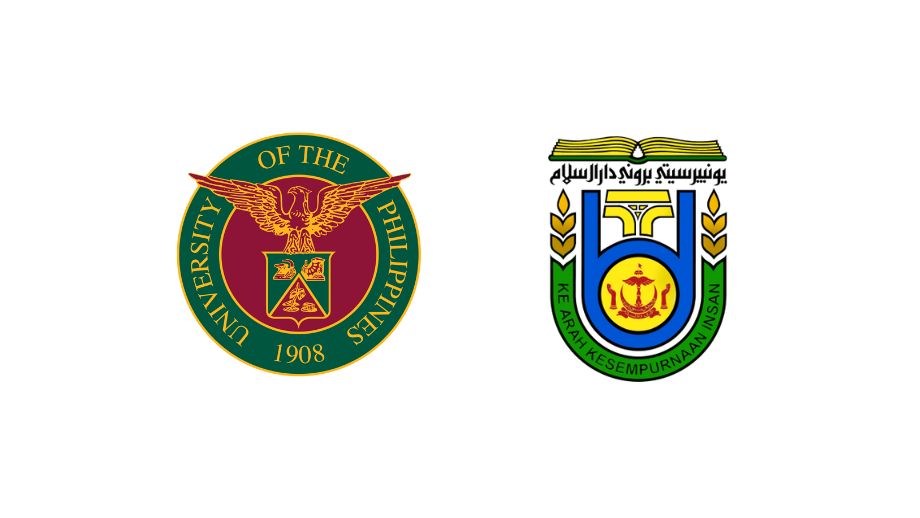
The University Social Responsibility Network (USRN) is delighted to announce the addition of two new member institutions: University of the Philippines (UP) and Universiti Brunei Darussalam (UBD). With their inclusion, USRN now comprises 24 member institutions globally, making our first presence in Brunei.
We are confident that the commitment and innovative approaches of UP and UBD in university social responsibility will bring valuable perspectives to our Network. We eagerly anticipate collaborating with these new members, alongside our existing partners, to further strengthen USRN’s impact and promote social responsibility in higher education around the world.
Universiti Brunei Darussalam
Universiti Brunei Darussalam (UBD), established in 1985, is Brunei’s flagship national research university and a leading institution for higher education and innovation. Guided by its GenNEXT curriculum, UBD places strong emphasis on holistic, student-centred learning designed to cultivate academic excellence, leadership, innovation, and life-long engagement with society.
A key testament to UBD’s commitment to University Social Responsibility (USR) is the Discovery Year (DY)—a mandatory experiential learning phase embedded in the third year of undergraduate study, typically spanning two semesters and comprising 32 modular credits. The inaugural cohort of UBD students undertook DY in 2011. The programme seeks to develop students personally, academically, and professionally through meaningful engagement beyond the campus environment.
The Community Outreach Programme (COP) encapsulates the essence of UBD’s USR values. Through COP, students are immersed in social contexts where they engage directly with community needs—applying knowledge, empathy, and leadership in authentic settings to promote social well-being and civic responsibility. Such engagement instils a strong ethic of service, strengthens community ties, and enriches students’ personal growth. Since its inception, DY has nurtured experiential and design-led learning that extends beyond academic boundaries, cultivating both community-based and international experiences. The inclusion of COP within the range of DY options reflects UBD’s balanced emphasis on contributing to local societal development while fostering global perspectives. The university has actively showcased the programme’s impact through forums and presentations, where students share their experiences across all DY tracks, including COP—highlighting inspiring accounts of empowerment, service, and positive social change in action.
University of the Philippines
The University of the Philippines, under its Charter of 2008 (RA 9500), is mandated to perform its unique and distinctive leadership in higher education and development. The University of the Philippines shall:
- Lead in setting academic standards and initiating innovations in teaching, research. and faculty development in philosophy, the arts and humanities, the social sciences, engineering, and natural sciences. mathematics, and technology; and maintain centers of excellence in these disciplines and professions.
- Serve as a graduate university by providing advanced studies and specialization for scholars, scientists, writers, artists and professionals especially those who serve on the faculty of state and private colleges and universities.
- Serve as a research university in various fields of expertise and specialization by conducting basic and applied promoting research and development, and contributing to the dissemination and application of knowledge.
- Lead as a public service university by providing various forms of community, public and volunteer service, as well as scholarly and technical assistance to the government, the private sector, and civil society while maintaining its standards of excellence.
- Protect and promote the professional and economic rights and welfare of its academic and non-academic personnel.
- Provide opportunities for training and learning in leadership, responsible citizenship, and the development of democratic values, institutions, and practice through academic and non-academic programs, including sports and enhancement of nationalism and national identity.
- Serve as a regional and global university in cooperation with international and scientific unions, networks of universities, scholarly and professional associations in the Asia Pacific Region and around the world.
- Provide democratic governance based on collegiality. representation, accountability, transparency, and active participation of its constituents: and promote the holding of fora for students, faculty, research, extension and professional staff (REPS), administrative staff, and alumni to discuss non-academic issues affecting the University.
The fourth function of the university, that of rendering extension service, has been greatly expanded and enhanced in UP. Through institutions such as the UP Padayon Public Service Office, the UP Resilience Institute and the Ugnayan ng Pahinungod, the University has become a public service institution fully conscious of its responsibility to produce ethical leaders, engage with communities, and translate the results of UP’s research into products and processes beneficial to people.